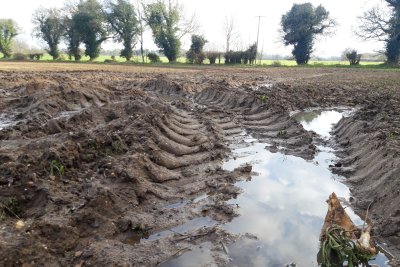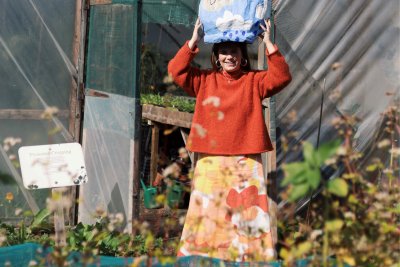Blogs • Sustainable Farming Campaign
Government bill removes safeguards on ‘GM with Better PR’
A Westminster bill being rushed through Parliament is set to impose untested – and unlabelled – genetically modified organisms on the UK food chain despite clear public, political and business objections. Campaigners are fighting to protect key safeguards. Read how you can get involved and help.

The UK Government’s Genetic Technology Bill was introduced on 25 May and is being rushed through the commons, despite controversy over the science, the politics and the impacts of the planned measures on the food and farming sectors.
GM with better PR
The bill’s full title is the Genetic Technology (Precision Breeding) Bill. Just like the ‘gene editing’ (which GM Freeze says is GM with better PR), the term ‘precision breeding’ is being used by the genetic engineering industry to improve their image. This bill is the first attempt to give it legal weight and the Government plans do this by inventing a new classification – the “precision bred organism”. GMOs will be deemed “precision bred” if they “could have resulted from traditional processes or natural transformation”. They will then be given what amounts to a free pass for distribution in our food and on our farms with no independent safety checks, no GM labels and no measures to prevent contamination or secure a GM-free supply chain.
This approach makes no scientific sense and was roundly rejected in the Government’s own consultation last year. Regulating on the basis of what could have happened, rather than what actually did, misses the point that the way in which any genetic change comes about has a huge impact on what can go wrong.
No protection from contamination
The draft new rules make no provision for protecting farmers, growers and food producers from contamination, even if they are certified organic. As this new class of GMO will not be labelled there will be no legal requirement to trace them through the food chain. This takes away our right to choose and also means that, if something goes wrong, it will be all the harder to put right.
The Genetic Technology Bill only applies to England because food and farming are devolved areas of responsibility. Scotland and Wales have the legal power to make their own rules, but pollen and seed don’t respect national borders so farms anywhere near the border with England will be vulnerable to contamination. Also, the Internal Market Act will make it incredibly difficult for the devolved nations to keep food produced with these de-regulated GMOs off their supermarket shelves.
Significant threat to farmed animals
Despite Government reassurances to the contrary, the Genetic Technology Bill opens the door for the creation of GM animals with no meaningful checks on safety or animal welfare. Compassion in World Farming has called it a significant threat for farmed animals and is actively campaigning for substantial changes to the bill alongside the RSPCA and others.
The Genetic Technology Bill is a huge threat to our food, our farms and the environment. This is an emergency, and we need everyone to play their part in defending the regulatory safety net that civil society successfully secured for us back in the 1990s. Follow this link for more information on how you can help take action: www.gmfreeze.org/defend.
Published Thursday 23 June 2022
Sustainable Farming Campaign: Sustain encourages integration of sustainable food and farming into local, regional and national government policies.





